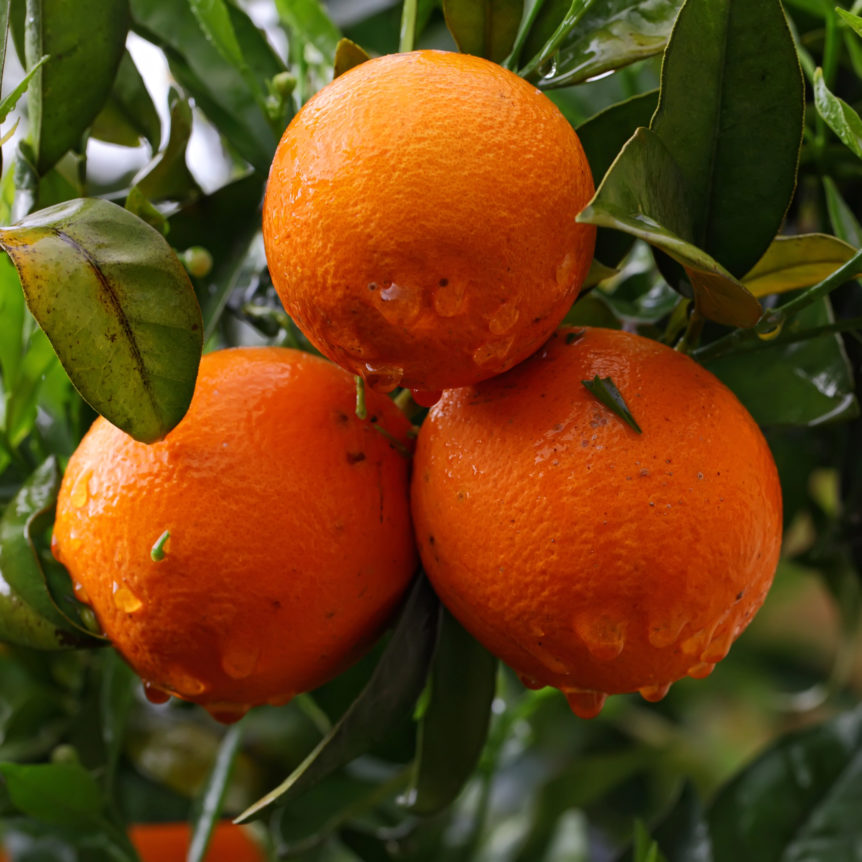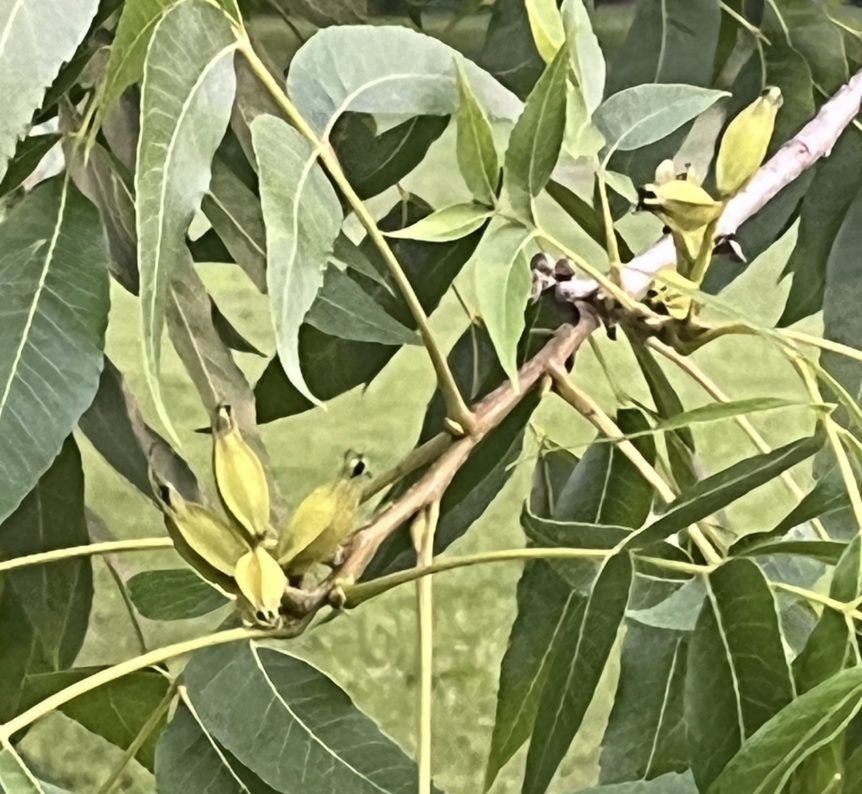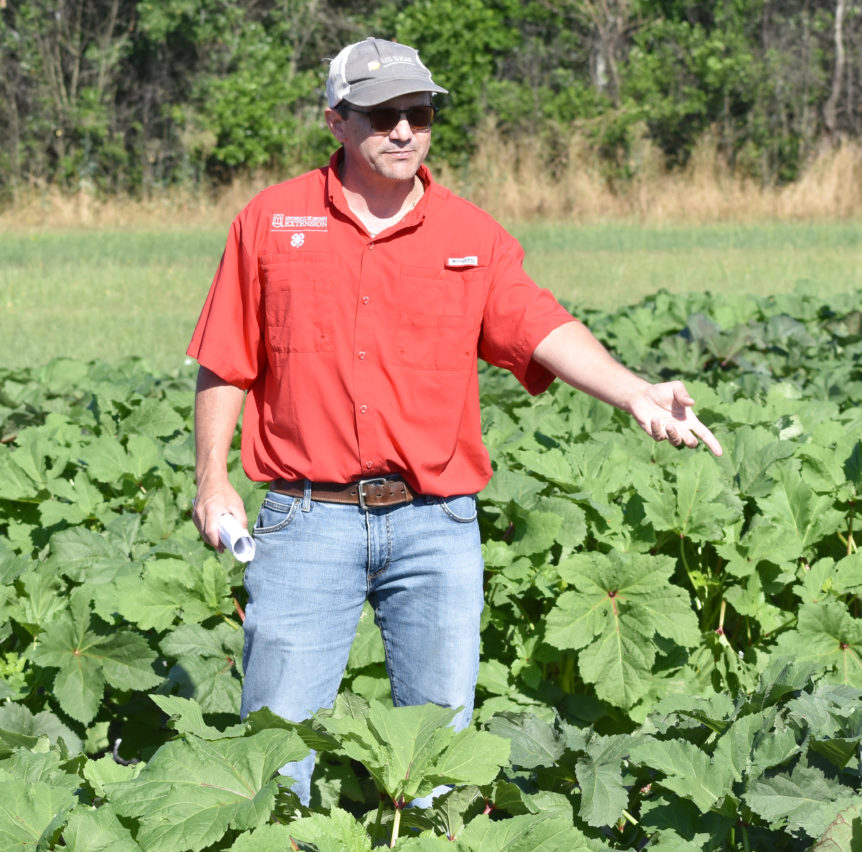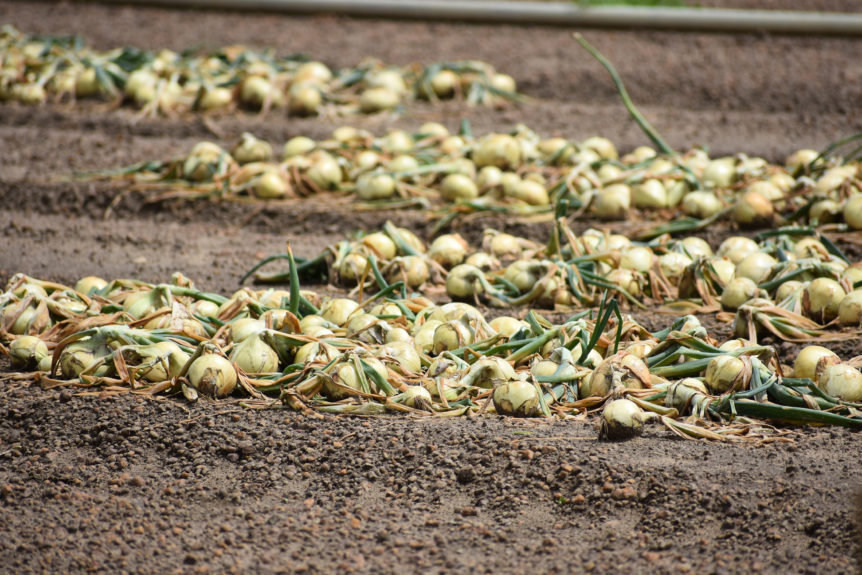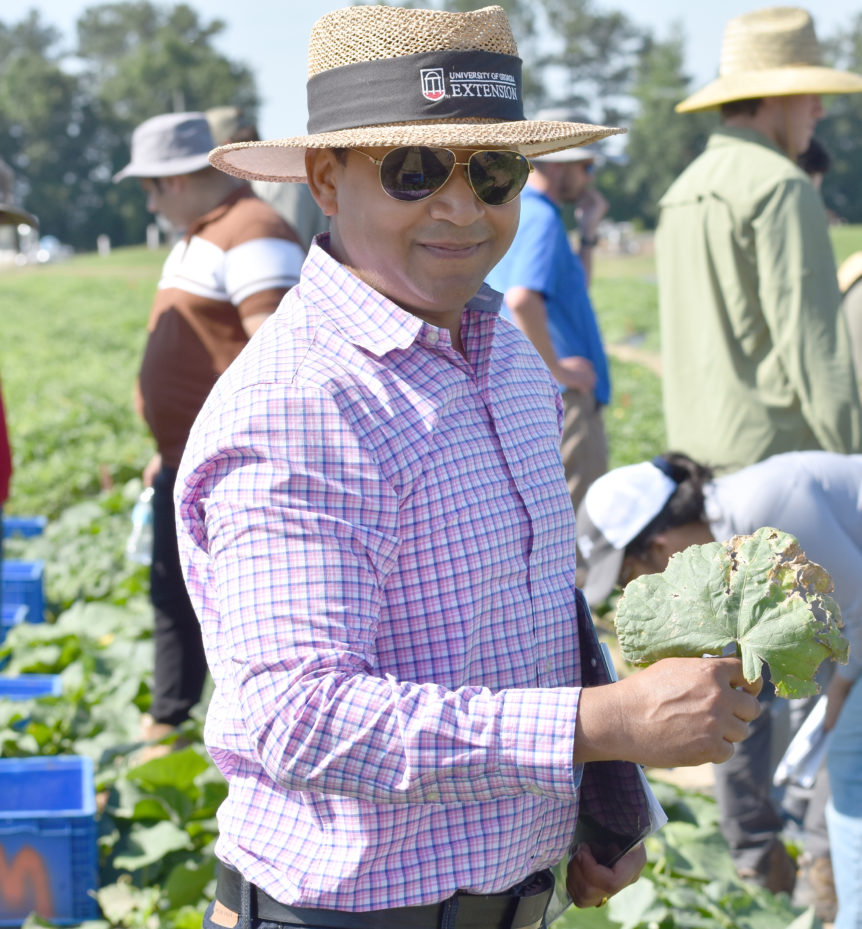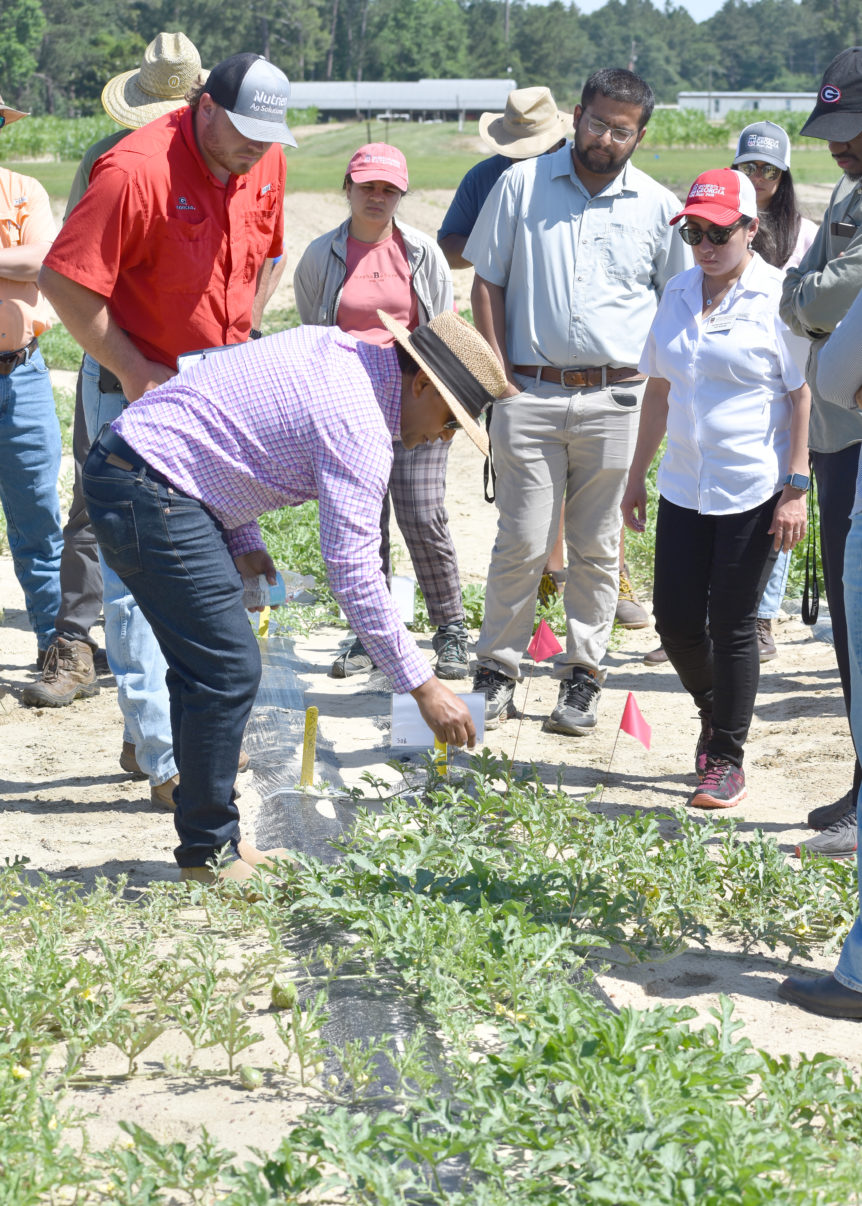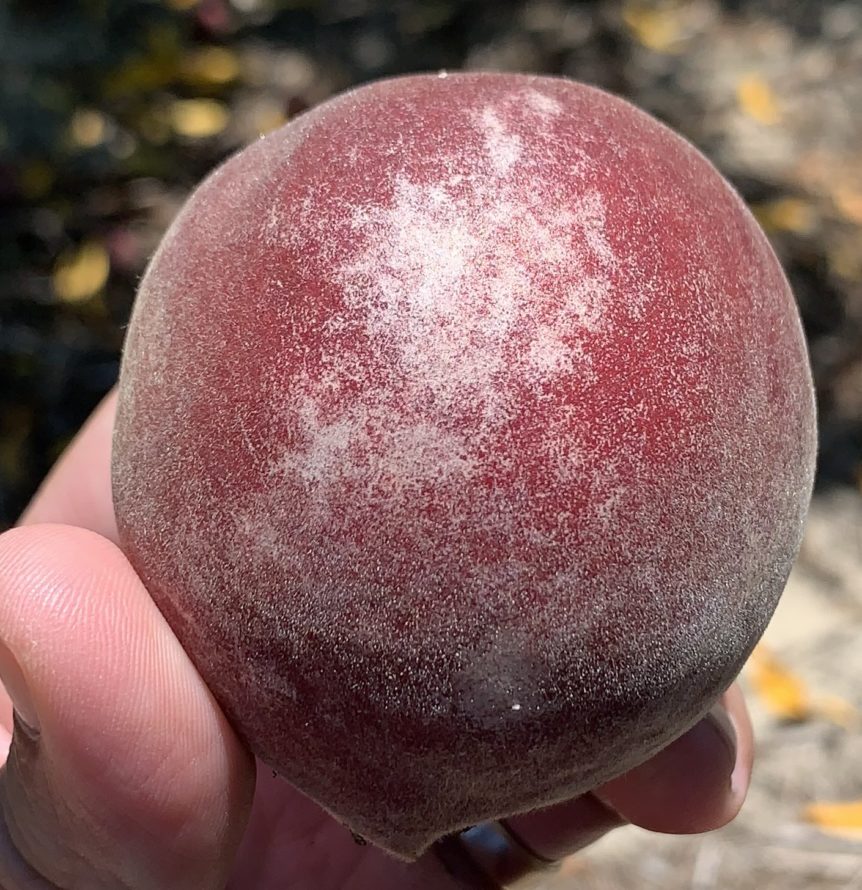By Clint Thompson Timing is critical for water needs for next season’s citrus crops across the Southeast. Much of the groves in the cold-hardy citrus region of North Florida, South Georgia and South Alabama are receiving their share of rainfall. But others are not. It is why producers need to remain diligent in applying water to their trees, says Mary …
Double Edge Sword: Increased Rain’s Impact on Region’s Pecan Crop
By Clint Thompson Frequent rain events in Georgia and Alabama have created a potential good and bad scenario for the states’ pecan producers. Lenny Wells, University of Georgia Extension pecan specialist, highlighted how the increased rainfall has impacted the region’s pecan crop. “From the standpoint of the crop’s needs, water is great for them. We’ve just gotten into the nut-sizing …
UGA Extension Citrus Specialist Discusses Rust Mites
By Clint Thompson Citrus producers in the Cold-Hardy Citrus Region must be mindful of citrus rust mites (CRM) amid the warm, humid climate in the region. Mary Sutton, University of Georgia (UGA) assistant professor and citrus Extension specialist, implores growers in North Florida, South Georgia and South Alabama to be proactive in managing the populations which are currently high. “They …
Secretary Rollins: Block Grants Are Moving Forward
By Clint Thompson Disaster relief remains a significant issue for Georgia’s specialty crop producers still reeling from major storms, including Hurricane Helene last fall. Fruit and vegetable farmers were pummeled by the storm when it moved through the region as a major hurricane in late September. Ag Secretary Brooke Rollins testified before the House Ag Committee on Wednesday about a …
UGA Vegetable Specialist Researching Okra
By Clint Thompson Vegetable research was the subject of a recent Extension agent training at the University of Georgia (UGA) Tifton Campus. One crop that Ted McAvoy, UGA Extension vegetable specialist, is currently focusing on is okra. He spoke about its significance for Georgia growers. “It’s the first time and I’m very excited about it. When I interviewed with the …
Vidalia Onion Crop: Weather Challenges Lead to Decreased Yields
By Clint Thompson Georgia’s Vidalia onion crop was high in quality but low in quantity this year, according to one industry expert. With the weather challenges that growers experienced across the region, it’s not a surprise that production dropped this year. “The crop’s not as big this year. What we have is good quality,” said Chris Tyson, University of Georgia …
UGA Studying Anthracnose’s Impact in Cucurbits
By Clint Thompson University of Georgia (UGA) research into anthracnose’s impact in cucurbits has one scientist studying disease resistance from multiple angles. “My part of the research is screening cucumber and watermelon varieties for resistance against anthracnose. There’s already resistant varieties for anthracnose race 1,” said Ted McAvoy, UGA Extension vegetable specialist. “If that’s the race we have, they should …
Research Options for Fusarium Wilt
By Clint Thompson Fusarium wilt’s complexity as a disease threat to watermelons in the Southeast makes it a challenge for research scientists to develop an effective management strategy. University of Georgia Extension Vegetable Plant Pathologist Bhabesh Dutta is researching options so growers can attack the disease from multiple angles. “The first thing I’m evaluating is the assessment of different novel …
MAHA Report Could Have Global Impact
By Clint Thompson Southeast fruit and vegetable producers are not the only ones that could feel the sting from the Make America Healthy Again (MAHA) Commission report. It’s a global concern, says Chris Butts, executive director of the Georgia Fruit and Vegetable Growers Association. Butts stressed the need that growers continue to have access following the report’s potential negative impact. …
Thrips Pressure High in Peaches
By Clint Thompson Thrips pressure has been high this year in peaches in the Southeast. Their impact started earlier than normal, according to Brett Blaauw, assistant professor at the University of Georgia (UGA) College of Agricultural and Environmental Sciences. “In years past, we’ve had thrips, mid-season, right now with some of our darker, red-colored fruit. The thrips feed on the …










